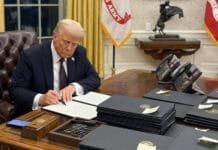INVC NEWS
Kyiv : In an extraordinary development on the Eastern European front, Ukraine has claimed a significant military advancement into Russian territory, marking a critical point in the ongoing conflict. On August 6, Ukrainian forces reportedly breached the Russian border, advancing approximately 35 kilometers into the Kursk region. This move, unprecedented since World War II, signifies a historic shift in the dynamics of the Russo-Ukrainian war, as Ukrainian forces gain ground on Russian soil.
A Historic Breach: Ukrainian Forces Penetrate Kursk Region
The Ukrainian military’s advance into the Kursk region represents a significant achievement in its ongoing efforts to repel Russian aggression. Under the leadership of Colonel General Oleksandr Syrskyi, the Ukrainian forces have reportedly expanded their control, moving two kilometers deeper into the region. This advancement brings approximately 1,300 square kilometers of Russian territory under Ukrainian control, an area that includes over 100 Russian buildings now occupied by Ukrainian troops.
This military operation is the first instance since the Second World War that an external military force has successfully penetrated Russian territory and sustained an advance. The Ukrainian offensive has sent shockwaves through the international community, raising questions about the potential for further escalation in the conflict.
Escalation of Hostilities: Russia’s Retaliatory Strike on Kharkiv
As Ukrainian forces push into the Kursk region, Russia has retaliated with a devastating attack on Kharkiv, Ukraine’s second-largest city. The Russian military launched a guided bomb strike, resulting in the deaths of five civilians and injuries to over 40 others. The attack ignited a fire in a 12-story residential building, causing significant destruction and further heightening tensions between the two nations.
This brutal assault on Kharkiv underscores the intensity of the conflict and highlights Russia’s willingness to use force to push back against Ukrainian advances. The situation in Kharkiv serves as a stark reminder of the human cost of the ongoing war, with civilians bearing the brunt of the violence.
Ukrainian Leadership Calls for Enhanced Military Support
In the wake of the recent advancements and retaliatory strikes, Ukrainian President Volodymyr Zelensky has renewed his call for increased military aid from Ukraine’s Western allies. Specifically, Zelensky has requested long-range weapons and enhanced air defense systems to support further incursions into Russian territory and to protect Ukrainian cities from retaliatory attacks.
The plea for advanced weaponry comes at a crucial time, as Ukrainian forces seek to consolidate their gains in the Kursk region and prepare for potential Russian counterattacks. President Zelensky’s request has been met with a positive response from European Union member states, who have announced plans to train Ukrainian soldiers in the use of new weapon systems and advanced combat techniques. This training, which is expected to take place in a neighboring friendly country, will be pivotal in equipping Ukrainian forces for the next phase of the conflict.
International Implications: Ukraine Urges Mongolia to Arrest Putin
In a bold diplomatic move, Ukraine has appealed to Mongolia to arrest Russian President Vladimir Putin during his upcoming visit on September 3. The International Court of Justice has issued a warrant against Putin, accusing him of war crimes, including the illegal deportation of hundreds of Ukrainian children to Russia. Ukraine’s request to Mongolia reflects its broader strategy of seeking international justice and holding Russian leadership accountable for their actions.
Mongolia’s response to this request will be closely watched, as it could set a precedent for other nations regarding the enforcement of international legal standards against powerful state actors. Russia, on the other hand, has downplayed the significance of the warrant, expressing no concerns about Putin’s scheduled visit to Mongolia.
Global Reactions: US Defense Secretary Reaffirms Support for Ukraine
Amid the escalating conflict, US Defense Secretary Lloyd J. Austin III has reaffirmed the United States’ unwavering support for Ukraine. In a recent meeting with Ukrainian Defense Minister Rustem Umerov at the Pentagon, Austin emphasized that Ukraine’s resilience is key to overcoming the aggression and atrocities perpetrated by President Putin’s regime. He condemned Russia’s recent attacks on Ukraine’s critical civilian infrastructure, labeling them as further evidence of the Kremlin’s disregard for international norms.
The Pentagon has pledged to continue leading the international coalition in providing Ukraine with the necessary capabilities to defend itself. This commitment from the United States, combined with support from European allies, is crucial for Ukraine as it navigates the complex and dangerous path of reclaiming its territory and sovereignty.
The Broader Impact: What This Means for the Future of the Conflict
Ukraine’s recent advance into the Kursk region represents more than just a tactical victory; it symbolizes a broader shift in the balance of power in the Russo-Ukrainian war. This advancement has demonstrated Ukraine’s growing military capabilities and its determination to reclaim occupied territories. However, it also raises significant concerns about the potential for further escalation, including the possibility of direct conflict between Russian and Ukrainian forces within Russia’s borders.
The international community remains divided on how to respond to these developments. While Ukraine’s allies continue to provide military and diplomatic support, the risks associated with further escalation are becoming increasingly apparent. As Ukraine continues its push into Russian territory, the world watches with bated breath, aware that the next steps in this conflict could have far-reaching consequences for global security.
A Turning Point in a Prolonged Conflict
The incursion into the Kursk region marks a turning point in the ongoing war between Ukraine and Russia. It is a bold move by Ukraine that signals its intent to take the fight beyond its borders, challenging Russia in its own territory. This development, combined with the ongoing diplomatic and military support from Western allies, could reshape the future of the conflict.
As both nations brace for what comes next, the world must prepare for the potential ramifications of this historic advance. Ukraine’s actions have demonstrated its resolve, but the path forward remains fraught with danger and uncertainty.





















